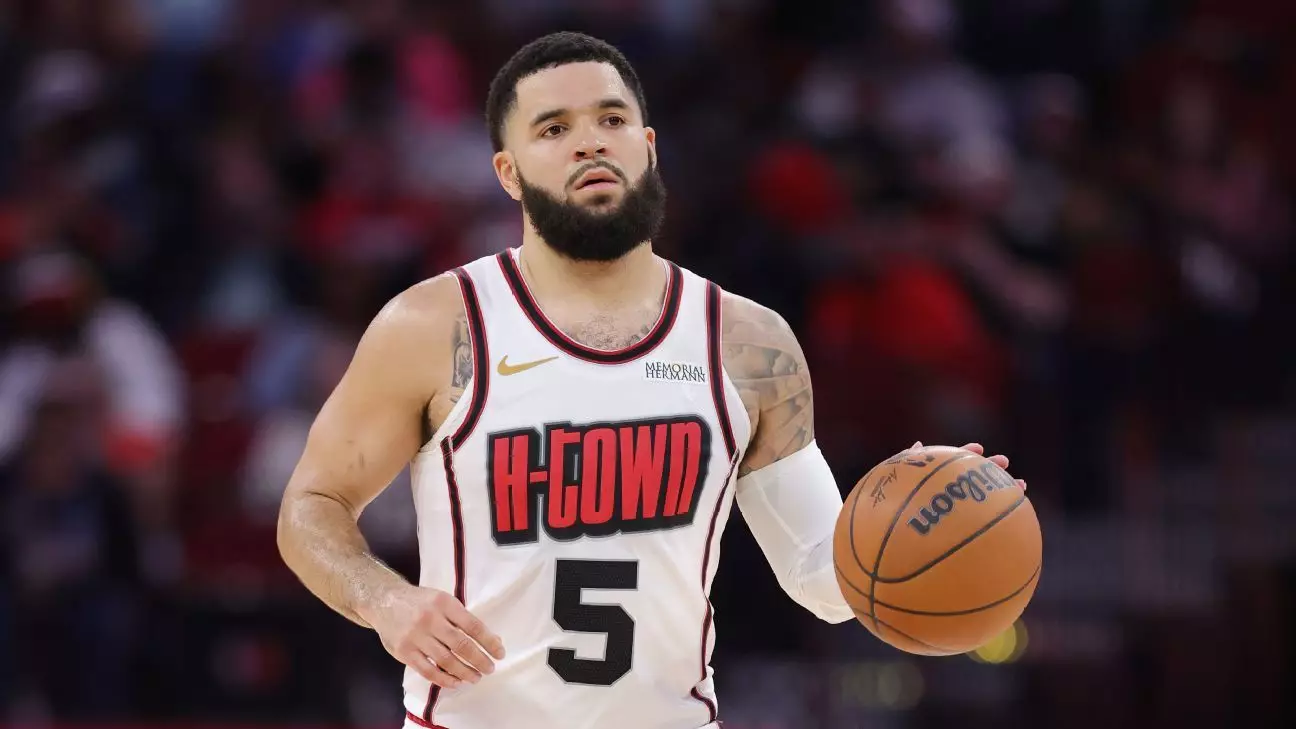In the high-stakes environment of the NBA, emotions can often spiral out of control, leading to significant consequences for players. Fred VanVleet, guard for the Houston Rockets, recently found himself at the center of controversy following a heated outburst directed at the officiating crew during a game against the Portland Trail Blazers. His actions not only cost him a technical foul and ejection but also a hefty fine of $50,000, reflecting the NBA’s zero-tolerance policy towards unsportsmanlike conduct.
The situation unfolded dramatically in the closing seconds of the game, with the Rockets trailing by five points and desperation looming. With just 4.3 seconds left, VanVleet was called for an offensive foul, a decision that drew immediate backlash from him. As he made his way off the court, his frustration boiled over, resulting in him directing profane language towards the trio of officials. This emotional display, while understandable given the competitive nature of professional sports, raised concerns about the appropriate boundaries athletes should maintain, even in moments of deep frustration.
Ejections, technical fouls, and fines not only affect a player’s wallet but also have repercussions for the entire team. For the Rockets, losing one of their key players in such a crucial moment can significantly alter game dynamics and morale. VanVleet, who serves as a leading scorer and playmaker for the team, is indispensable, and his absence can disrupt the already fragile momentum of their season. This incident serves as a stark reminder that players must manage their emotions, not just for personal integrity, but for the welfare of the team as a whole.
In the aftermath of the game, officials provided a post-game explanation regarding the foul call that sparked VanVleet’s frustration. Crew chief Courtney Kirkland revealed that after a video review, it was determined that the defender did indeed make contact with VanVleet, suggesting an oversight in officiating that could have shifted the game’s outcome. This highlights a broader conversation about the need for consistent officiating and the importance of accountability in the NBA’s officiating system. Players like VanVleet rely on the integrity of these calls, and in moments when mistakes are made, the emotional responses that follow can be explosive.
As the season progresses, VanVleet and the Rockets must recalibrate and learn from this incident. While it’s natural for players to react viscerally to unfairness or perceived injustices on the court, finding ways to channel that passion constructively is imperative. Mental resilience not only helps in navigating the unpredictable nature of games but also shapes a player’s leadership role within the team. As for VanVleet, this experience may serve as a pivotal learning moment, reminding him of the thin line athletes walk between fierce competitiveness and maintaining professionalism amid adversity.
VanVleet’s moment of passion exemplifies the intense emotional landscape athletes navigate and serves as a further illustration of the fine balance required in competitive sports. Understanding and managing these emotions is crucial not only for individual players but for the integrity of the sport as a whole.

